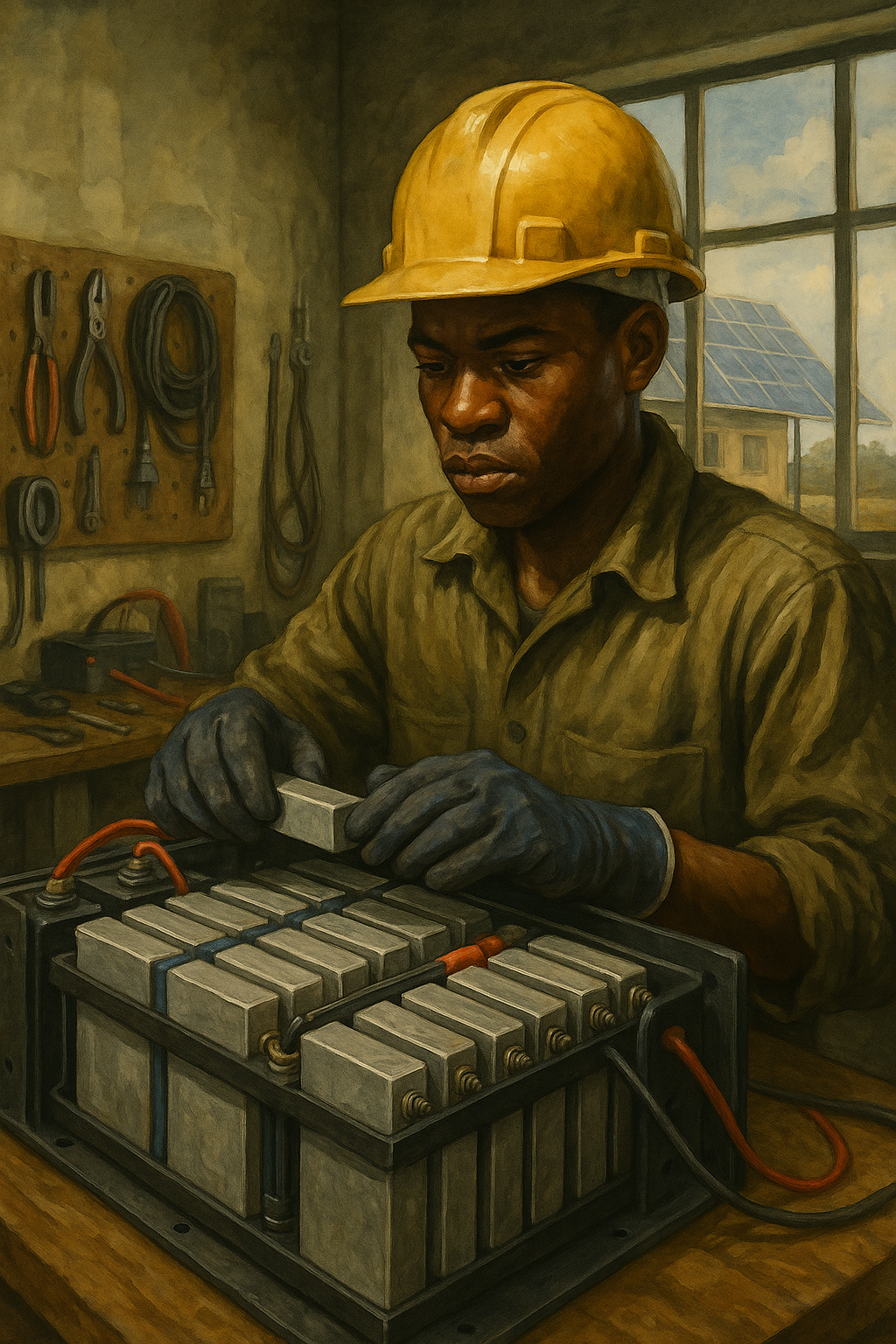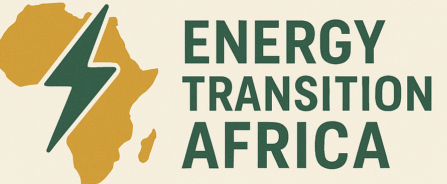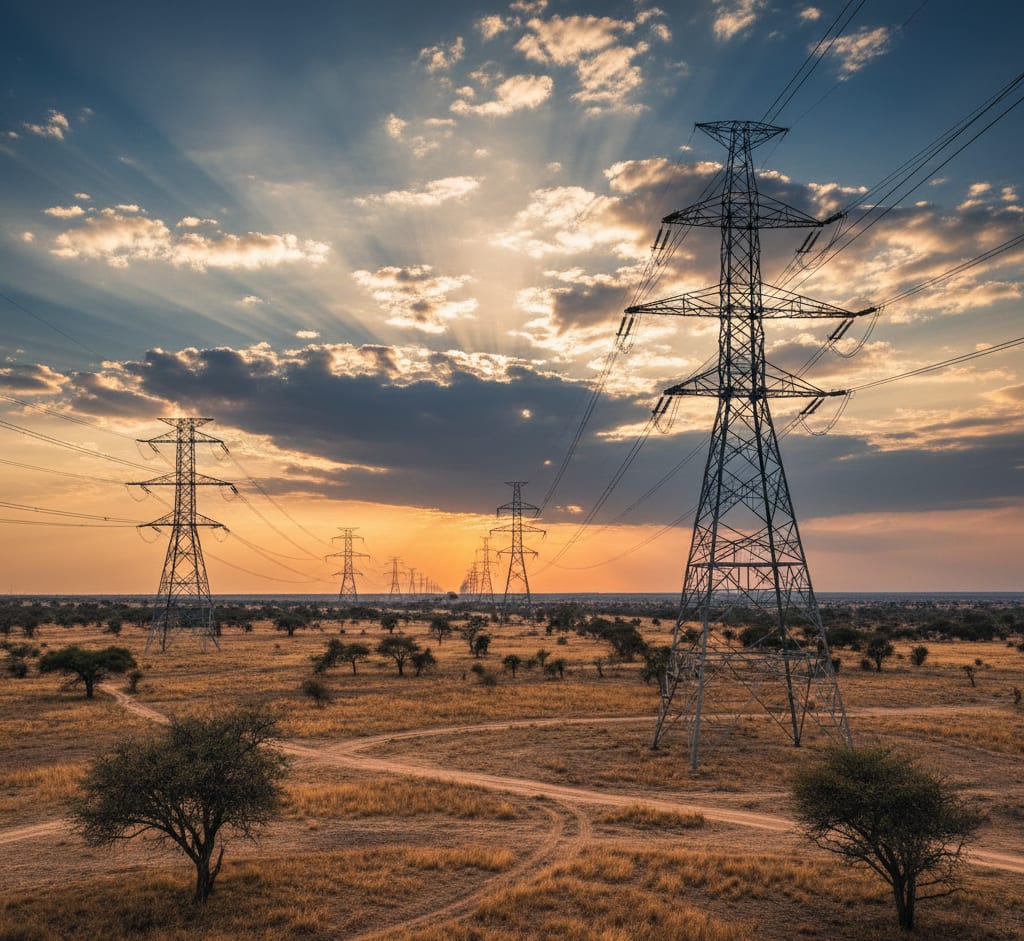Critical Minerals in Africa: Energy Transition Supply Chains, Skills, and Strategic Policy

As a continent, we sit on the world’s largest reserves of cobalt, manganese, platinum, lithium and graphite. the very minerals that make electric vehicles, wind turbines, solar batteries and green hydrogen possible. Yet when the world talks about energy transition, it talks about minerals from Africa, not manufacturing in Africa, not engineers from Africa, not innovation led by Africa.
What are “critical minerals” in the context of Africa’s energy transition?
Critical minerals are elements needed for technologies such as batteries, solar panels, wind turbines, and EVs. Africa has large reserves of minerals like lithium, cobalt, and rare earths, but gaps in processing and skilled labour limit the continent’s competitive position.
Africa Has the Minerals, But Not the Workforce
The International Energy Agency (IEA) estimates global demand for critical minerals will rise between 300% and 700% by 2040, depending on the speed of global net-zero ambitions. Africa holds over 30% of known reserves, yet contributes less than 1% of global battery manufacturing, and under 2% of renewable energy jobs worldwide.
Our universities teach mining geology but not battery chemistry. We graduate petroleum engineers for oil rigs that may not exist in 20 years, but not hydrogen technologists, grid-automation experts, or EV assembly technicians.
Across the continent:
- 80% of engineering graduates in Nigeria, Kenya and Ghana are either unemployed or working outside their field.
- Only 2% of global clean energy patents come from Africa.
- The African Development Bank (AfDB) says we need 25 million new skilled workers by 2030 to meet energy transition goals, but we are not training even a quarter of that.
We face a new kind of resource curse. Not minerals without money, but minerals without skills.
The World Wants Our Minerals, But Not Our Engineers
Walk through the cobalt mines of Kolwezi in the DRC, and you see teenage boys carrying ore in sacks. Walk through the battery plants in Shenzhen or Nevada, and you see high-skilled engineers assembling cathode materials, often using that same cobalt.
We export opportunity.
The same happens in solar. Africa has 60% of the world’s best solar potential. But we import over 80% of our solar panels, mostly from China. Inverters, battery packs, control software, even the simplest mounting structures, are manufactured elsewhere, installed here, and then maintained by external firms.
We dream of green jobs, but without skills, green jobs belong to someone else.
Why Skills Are Missing, Three Structural Breaks
1. Education Built for Yesterday’s Energy World
Most curricula still prepare students for oil and gas, not grid digitisation, solar manufacturing, green hydrogen, or electric transport. TVET colleges lack equipment. Universities lack partnerships with industry.
2. Extraction Without Transformation
In mining towns, skill sets are focused on extraction, not beneficiation. We train drillers and machine operators, but not metallurgists, chemical process engineers, or battery assemblers.
3. Importing Expertise Instead of Building It
Major renewable projects, from Morocco’s Noor Solar Park to Kenya’s Lake Turkana Wind Farm, rely on foreign engineers. Contracts complete. Expertise leaves. No legacy.
“If Africa becomes the world’s supplier of green minerals but not green jobs, then the energy transition is just the old economy, with solar panels on the surface.”
But Change Is Possible And It Has Already Begun
Across the continent, a few countries are breaking the pattern.
🔹 Morocco – The Solar Classroom in the Desert
Beside the Noor Solar Plant, Morocco built the Institute for Research in Solar Energy and New Energies (IRESEN), training engineers in CSP technology. Some now work in Senegal, Rwanda and Mali.
🔹 South Africa – From Coal Mines to Clean Energy Technicians
Through the Just Energy Transition Investment Plan (JET-IP), coal workers are being retrained into solar installation, grid maintenance and battery storage. Over 300,000 workers will be transitioned by 2030.
🔹 Kenya – TVET as Energy Infrastructure
Kenya’s government upgraded 238 Technical Institutes to produce solar technicians, micro-grid operators and wind energy specialists. More than 50,000 youth trained under the ILO’s “Skills for Green Jobs” programme.
🔹 Namibia – Training for Lithium & Green Hydrogen
Namibia is launching Africa’s first Green Hydrogen Training Institute in partnership with Germany, producing electrolysis specialists, green ammonia engineers and logistics experts.
These are small but powerful markers of what is possible when skills are treated as infrastructure, not an afterthought.
What Africa Must Do Now
To avoid another century of exporting our future, we must act on five fronts:
- Make skills a condition for investment
Every mining, solar, wind or hydrogen project must include a mandatory skills-transfer and apprenticeship programme. - Build mineral-to-manufacturing schools
Africa needs battery institutes, mini-grid academies, and hydrogen universities, located near mining regions, to turn raw materials into engineered products. - Finance people like we finance pipelines
At least 5% of every national energy budget and mineral revenue should be ring-fenced for skill-building and vocational capacity. - Unleash entrepreneurs, not just employees
Support local startups in EV assembly, battery pack design, inverter production and digital mini-grid platforms with grants, procurement and incubation. - Link mining towns to innovation hubs
No mine should exist without a technical school beside it. If lithium leaves Zimbabwe, but no battery engineers remain, that is not a transition; it is surrender.
So, Can Africa Build the Workforce for Its Energy Future?
Yes, but only if we accept that minerals alone are not wealth. People are.
If we fail, Africa will again light the world and remain in the dark.
But if we invest in our people, welders, coders, engineers, electricians, policy architects, then Africa will not just be part of the energy transition. We will help lead it.
That is what millions of young Africans deserve. That is what a just transition truly means.



